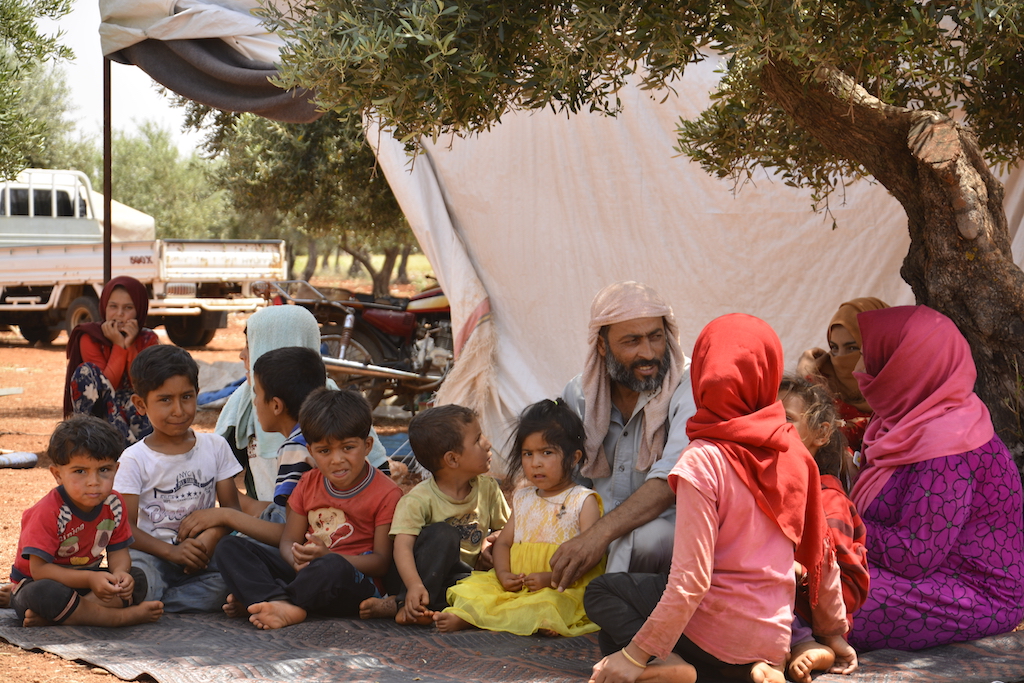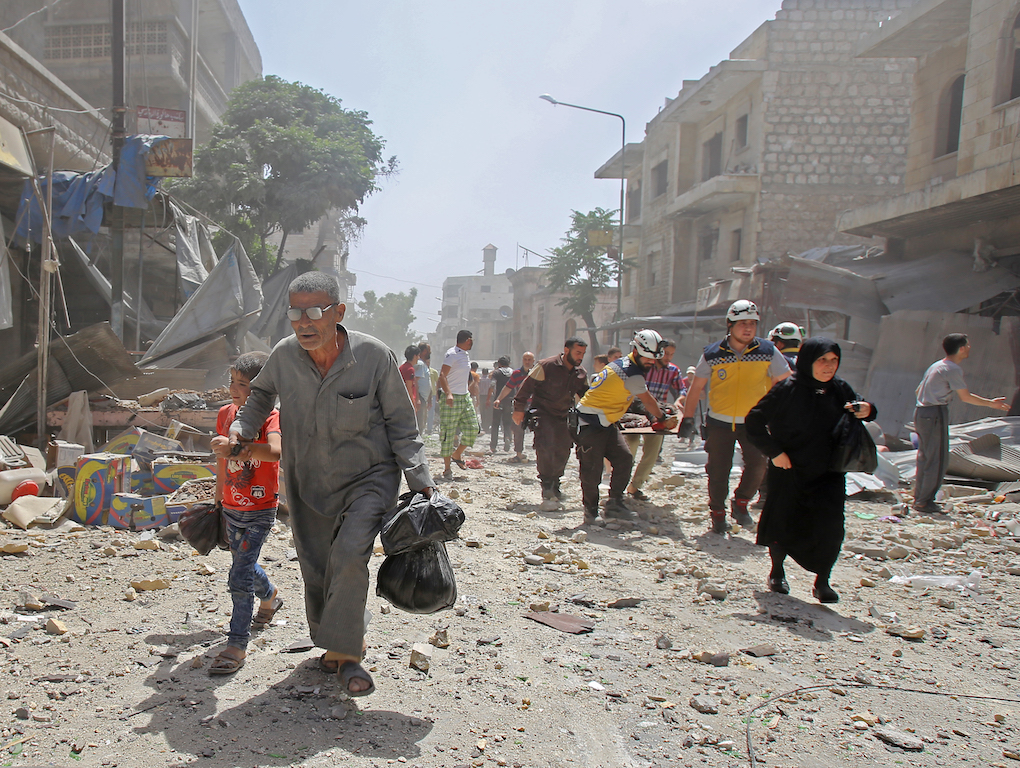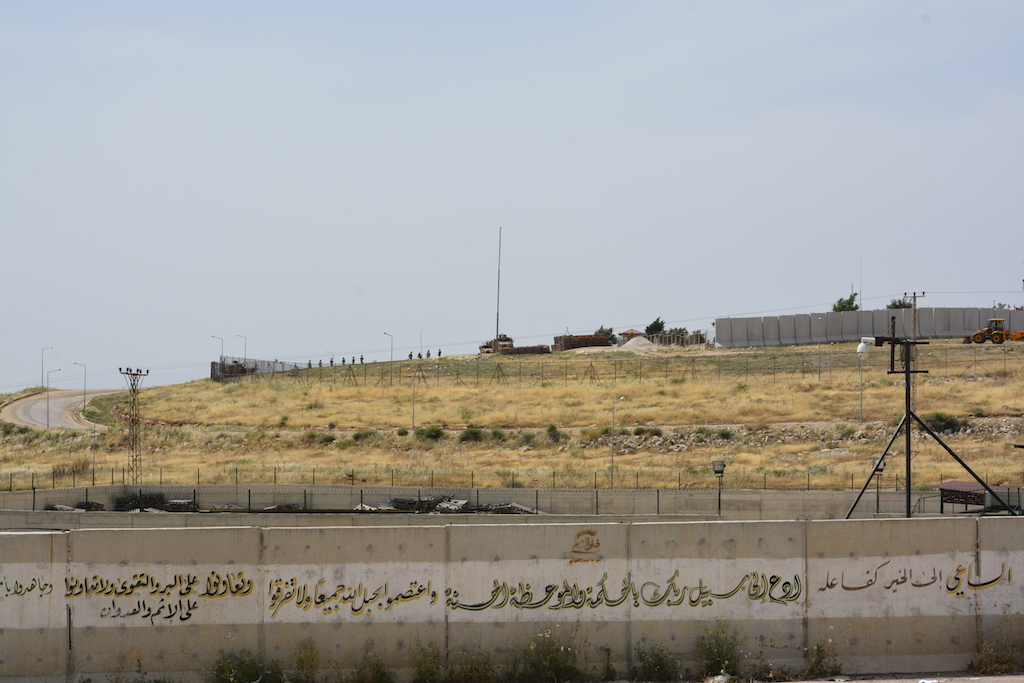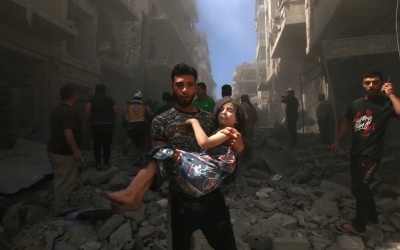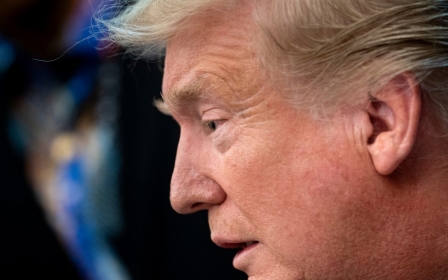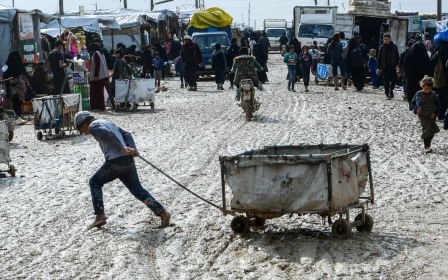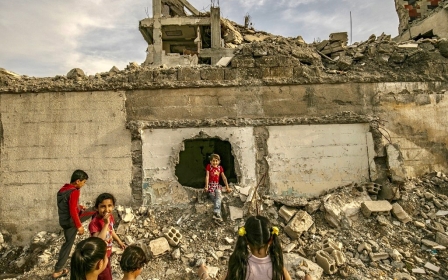Idlib's olive tree groves become camps for displaced as bombardment continues
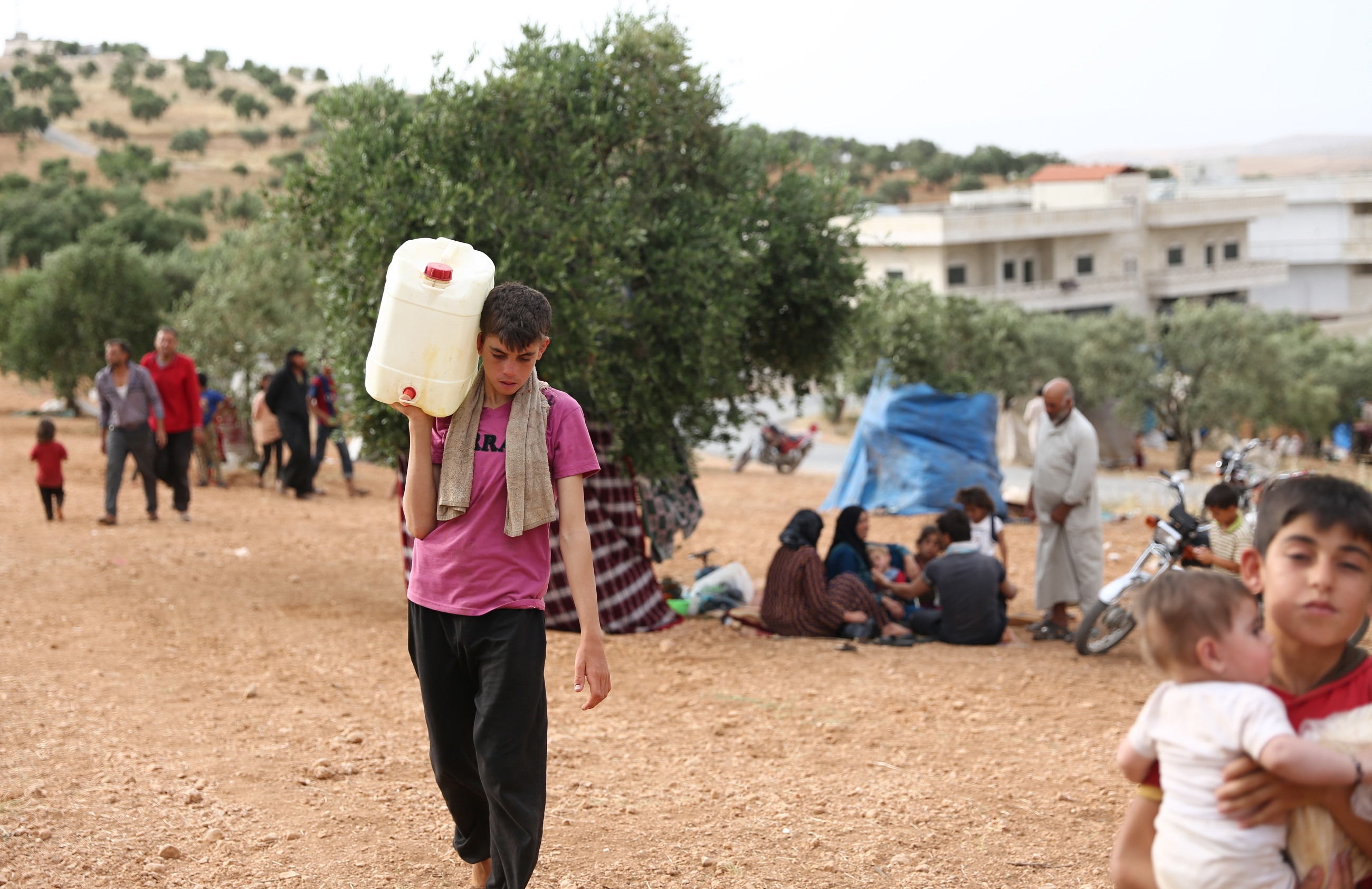
Among the olive groves of Idlib, seven-year old Fatima sits and looks at her mother's phone, receiving updates on the latest news of government attacks.
Her father doesn't have a tent, so the family furniture remained in the car after they were displaced on Friday from Kernabal, a town south of Idlib, where they had lived for five years.
Prior to that they had been displaced from their village Jubbayn in northern Hama, on the the border with Idlib.
They sit along with thousands of other families in the olive fields of northern Idlib. The trees have long been a source of livelihood for the residents of Idlib - now they function as their camps, stretching for about 50 kilometres between Idlib and the town of Atme on the Syrian-Turkish border.
Since late April, Syrian government forces - backed by ally Russia - have launched large-scale attacks to regain control of Idlib, and they have taken control of several towns and villages on the outskirts of the province.
New MEE newsletter: Jerusalem Dispatch
Sign up to get the latest insights and analysis on Israel-Palestine, alongside Turkey Unpacked and other MEE newsletters
On Monday, government bombardments by the Syrian government killed six civilians in Idlib - just hours after US President Donald Trump urged Damascus to "stop bombing the hell" out of the province.
The repeated bombings have seen a new wave of displacement in the region.
One of those displaced is Abdul Aziz al-Kder, a farmer who was displaced a month ago from the town of Kafr Nabudah, north of Hama, and is still sitting with his wife and seven children under olive trees.
"I was displaced in the final moments of the advance of the government forces. I could not carry my clothes and furniture, barely fled with my family," Kder told MEE.
"The government forces stole all of my property and burnt my land - which was planted with wheat and barley - and most of the village's land."
Kder does not have a tent, so he stays in the morning under olive trees and during the night he sleeps with his family and children in the tent of a relative. Most tents are inhabited by two or three families.
Targeting camps
In late 2017, Turkey, Iran and Russia agreed on the creation of de-escalation zones in northern Syria as a means of preventing a more serious conflict.
Idlib is the fourth de-escalation area in the north of the country, along with eastern Ghouta, Daraa province in southern Syria, and parts of the northern Homs countryside in central Syria.
While Turkey established 12 monitoring points around Idlib under the Astana agreement, the rest of the de-escalation areas collapsed and thousands have been displaced by air strikes.
Idlib has become the last opposition stronghold of three million people. In an attempt to spare Idlib a major offensive, Turkey and Russia signed a deal in Sochi in late 2018, establishing a de-militarised zone around the province.
But Russia and Syria have criticised Turkey's failure to challenge the dominance of the former al-Qaeda affiliate Hay'at Tahrir al-Sham (HTS) in the province and restarted attacks, pushing many Syrians to the border with Turkey.
Sit-in
On Friday, activists called for a demonstration of one million people in Atme to break through the border into Turkey. Atme has for five years maintained a mass of Syrians demanding entry into their northern neighbour.
Demonstrators carried numerous slogans, including "Because we are not able to defend ourselves as civilians, we decide to cross the border to move toward Europe" and "Our children’s bodies can not resist attacks and barrels bombs."
Only a few hundred people eventually took part in the demonstration, which lasted less than one hour.
One man, who came with his family about an hour after the demonstration, said he was angry that the protest had dissipated.
"Where is the sit-in? This is disappointing," he told MEE, without giving his name.
"Where will I go now with my village in southern Idlib being shelled daily?"
MEE saw some military vehicles, ambulances and Turkish soldiers deployed behind the border wall, apparently on alert in case demonstrators attempted to break through.
Although the protesters returned to the olive trees after the sit-in failed, they said they hoped a demonstration next Friday would be more successful.
Darwish al-Saleh, one of the organisers of the protests, told MEE that the crowds at the border would not be going anywhere - they have nowhere else to go.
"The demonstration is aimed at putting pressure on EU countries that fear displacement and illegal immigration," he said.
"These countries should take concrete steps to stop the attacks of Damascus and Moscow on Idlib."
Resources are getting scarce and expensive, however, and time is starting to run out.
The most important needs of the displaced are water, and tents, which are locally priced at about $75 each.
'No safe place'
The governments of UK, France and Germany have issued a statement on 13 May, called on all parties to the conflict in Syria to stop the escalation.
The United Nations says about 200,000 civilians have been displaced since the escalation began.
According to the Syrian Network for Human Rights (SNHR), a UK-based activist group, between 26 April and 2 June 2019, at least 320 civilians have been killed in Idlib.
The group told MEE that the Russian-Syrian alliance had also targeted three camps for the displaced.
“Although civilians have been displaced from their villages as a result of the escalation this did not prevent attacks on their camps," said Fadel Abdul Ghany, chairman of SNHR.
“This is like a message from Damascus and Moscow that they continue to pursue all persons opposed to Damascus, until they are eliminated. This may last for a lifetime."
On 23 May, government helicopters dropped leaflets calling on civilians to leave their homes and return to areas controlled by Damascus, through two crossings under Russian supervision.
“Idlib witnesses systematic genocide," said Ghany.
"People have been displaced to the camps by attacks on their homes, yet there is no safe place for them."
Middle East Eye delivers independent and unrivalled coverage and analysis of the Middle East, North Africa and beyond. To learn more about republishing this content and the associated fees, please fill out this form. More about MEE can be found here.


